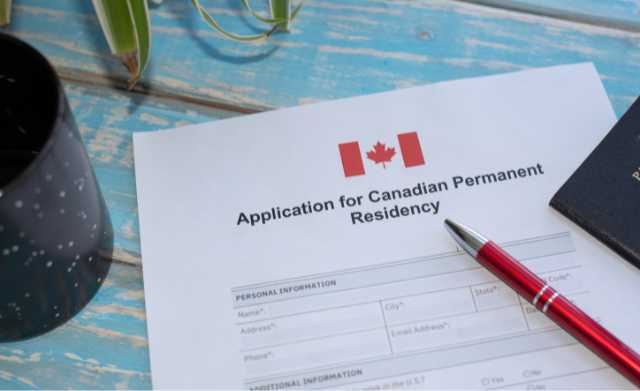Comprehensive Guide to Obtaining a Canada Study Visa
Canada, a nation renowned for its breathtaking landscapes, diverse populace, and high-quality education system, has become a sought-after destination for international students seeking to pursue their academic aspirations. With its world-class universities, vibrant cities, and welcoming atmosphere, Canada offers an enriching and transformative study abroad experience.
Navigating the Study Permit Application Process
Obtaining a Canada study visa, also known as a study permit, is an essential step for foreign nationals seeking to pursue post-secondary education in Canada. The application process involves several steps and considerations, and this comprehensive guide aims to provide a detailed overview to assist prospective students in navigating the requirements and procedures.
Eligibility Requirements for Canada Study Visas
To be eligible for a Canada study visa, applicants must meet certain criteria, including:
-
Acceptance Letter: Possession of a valid acceptance letter from a designated learning institution (DLI) in Canada.
-
Financial Support: Demonstration of sufficient financial means to support oneself during the study period.
-
Study Plan: A well-structured study plan outlining the intended course of study and its alignment with academic and career goals.
-
English or French Language Proficiency: Adequate proficiency in either English or French, depending on the language of instruction at the chosen institution.
-
Health Requirements: Meeting Canada’s health standards, which may involve undergoing a medical examination.
Application process for Canada Study Visas
1. Create an Online Profile:
The first step is to establish an online profile in the Immigration, Refugees and Citizenship Canada (IRCC) portal. This will serve as your central hub for managing your application, accessing updates, and communicating with IRCC. Create an account and provide your personal information, including contact details, passport information, and immigration history.
2. Complete Application Forms:
Carefully fill out the appropriate application forms for the study visa type you are applying for. These forms typically require detailed information about your background, education, work experience, language proficiency, and immigration intentions. Ensure you provide accurate and consistent information throughout the application forms.
3. Gather Required Documents:
Collect the necessary documentation to support your application. This typically includes:
- A valid passport or travel document
- A letter of acceptance from a designated learning institution (DLI) in Canada
- Proof of financial support, such as bank statements, scholarships, or financial sponsorship letters
- Educational certificates and transcripts
- Language test results, such as IELTS or TOEFL
- Medical examination results, if required
- Biometrics instruction letter, if applicable
Ensure all documents are complete, accurate, and translated into English or French if necessary. Organize the documents neatly and securely for submission.
4. Pay Application Fees:
Submit the required application fees, which vary depending on the applicant’s circumstances. Fees can be paid online or through designated payment methods. Ensure you pay the correct amount and obtain a receipt for payment records.
5. Biometrics and Medical Examination (if applicable):
Attend a biometrics collection service point to provide fingerprints and a photograph. This step is typically required for all applicants. If applicable, undergo a medical examination as per the instructions received from IRCC. The medical examination will assess your health and ensure you meet Canada’s health standards.
6. Submit Application:
Once you have completed all the necessary steps, submit your application, along with supporting documents and fees, to the designated IRCC office or online portal. Ensure your application is complete, accurate, and well-organized to increase the chances of a successful outcome.
7. Processing and Decision:
IRCC will receive your application and begin the processing stage. This typically involves reviewing your eligibility, verifying your documentation, and conducting background checks. The processing time varies depending on the application complexity, IRCC workload, and the applicant’s country of origin. Upon completion, a decision will be made and communicated to the applicant.
Additional Considerations:
-
Start Early: Initiate the application process well in advance of your intended travel date or study start date to allow ample time for processing and decision-making.
-
Seek Professional Assistance: Consider consulting an experienced Canada study visa consultant or immigration lawyer to guide you through the process, increase your chances of success, and ensure compliance with regulations.
-
Stay Informed: Keep up-to-date with the latest immigration regulations and requirements for Canada study visas to ensure your application meets current standards.
-
Respond Promptly: Respond promptly to any requests for additional information or clarification from IRCC to avoid delays in processing.
-
Prepare for Arrival: If your application is successful, begin planning your arrival in Canada, including securing accommodation, arranging transportation, and understanding entry requirements.
-
Post-Visa Approval: Once your study permit is approved, you will receive a visa entry sticker to be placed in your passport. This sticker allows you to enter Canada to begin your studies. Remember to activate your study permit within 15 days of arrival in Canada.
By carefully following these steps and considerations, you can increase your chances of obtaining a Canada study visa and embarking on a rewarding academic journey in this vibrant and welcoming country.
Processing Timelines for Canada Study Visas
Processing times for Canada study visas vary depending on the application complexity, IRCC workload, and the applicant’s country of origin. Generally, processing times range from a few weeks to several months. Applicants are advised to start the application process well in advance of their intended study start date to allow ample time for processing and decision-making.
Tips for Enhancing Study Visa Application Success
-
Start Early: Initiate the application process as early as possible to avoid delays and ensure sufficient time for processing and decision-making.
-
Prepare Thoroughly: Gather all required documentation meticulously and ensure it is complete, accurate, and translated into English or French if necessary.
-
Proofread Carefully: Double-check all application forms and supporting documents for accuracy and consistency to avoid errors that could delay or hinder the application process.
-
Seek Professional Assistance: Consider consulting an experienced Canada study visa consultant or immigration lawyer to guide you through the process and increase your chances of success.
-
Stay Informed: Keep abreast of the latest immigration regulations and requirements for Canada study visas to ensure your application aligns with current standards.
FAQ's
A visitor visa is intended for temporary stays in Canada for tourism or business purposes, while a study permit is specifically designed for foreign nationals pursuing post-secondary education in Canada.
Yes, Canada allows international students to work part-time on-campus or off-campus under certain conditions and limitations.
Canada offers a multitude of benefits for international students, including world-class universities, diverse study options, a welcoming multicultural environment, and opportunities for post-graduation work experience.
Tuition fees and living expenses vary depending on the institution, program, and location. However, Canada generally offers more affordable study options compared to many other developed countries.
Numerous scholarships and financial aid opportunities are available for international students in Canada. These can be found through universities, government programs, and private organizations.



